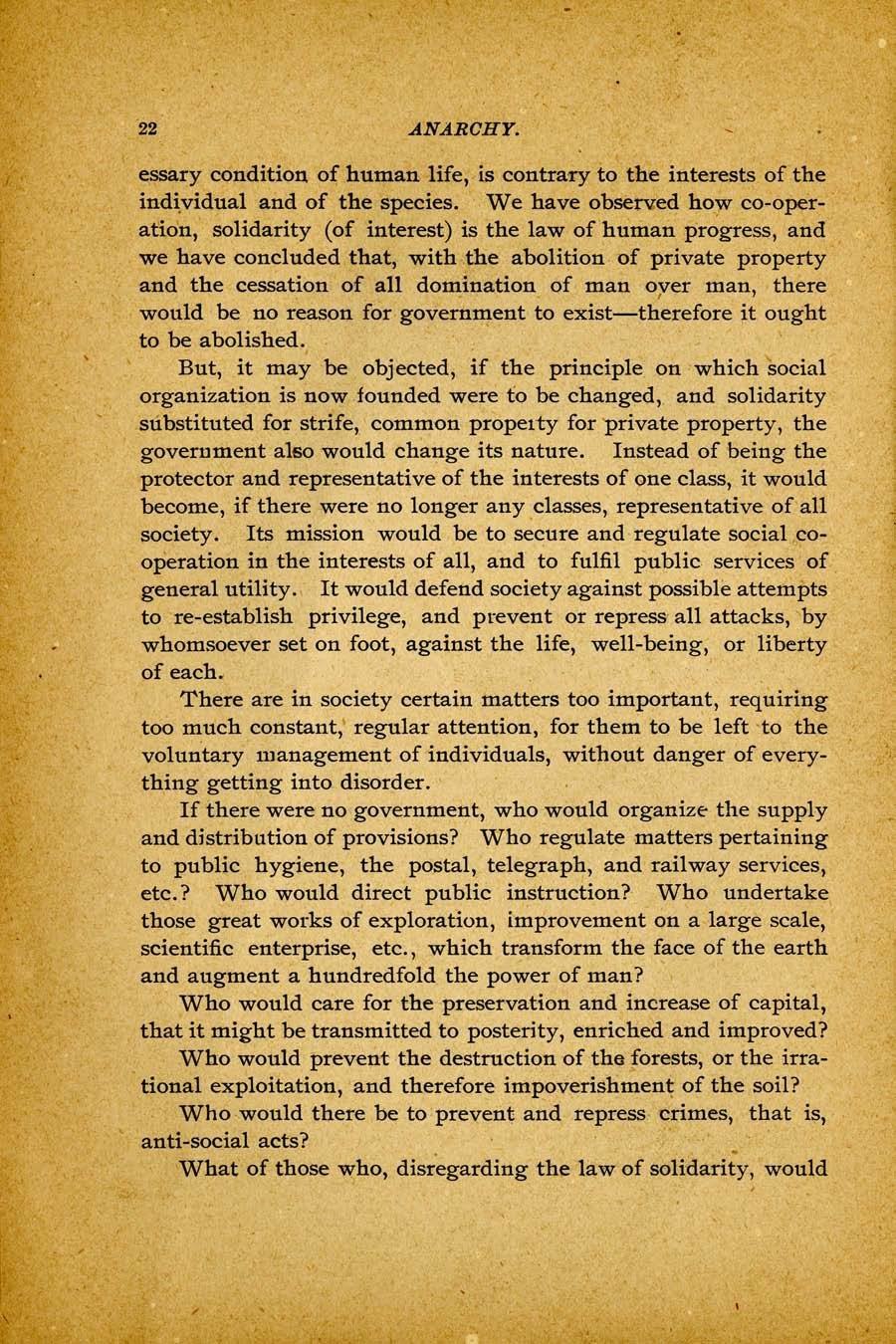essary condition of human life, is contrary to the interests of the individual and of the species. We have observed how co-operation,' solidarity (of interest) is the law of human progress, and we have concluded that, with the abolition of private property and the cessation of all domination of man over man, there would be no reason for government to exist—therefore it ought to be abolished.
But, it may be objected, if the principle on which social organization is now founded were to be changed, and solidarity substituted for strife, common property for private property, the government also would change its nature. Instead of being the protector and representative of the interests of one class, it would become, if there were no longer any classes, representative of all society. Its mission would be to secure and regulate social co-operation in the interests of all, and to fulfil public services of general utility. It would defend society against possible attempts to re-establish privilege, and prevent or repress all attacks, by whomsoever set on foot, against the life, well-being, or liberty of each.
There are in society certain matters too important, requiring too much constant, regular attention, for them to be left to the voluntary management of individuals, without danger of everything getting into disorder.
If there were no government, who would organize the supply and distribution of provisions? Who regulate matters pertaining to public hygiene, the postal, telegraph, and railway services, etc.? Who would direct public instruction? Who undertake those great works of exploration, improvement on a large scale, scientific enterprise, etc., which transform the face of the earth and augment a hundredfold the power of man?
Who would care for the preservation and increase of capital, that it might be transmitted to posterity, enriched and improved? Who would prevent the destruction of the forests, or the irrational exploitation, and therefore impoverishment of the soil?
Who would there be to prevent and repress crimes, that is, anti-social acts?
What of those who, disregarding the law of solidarity, would
